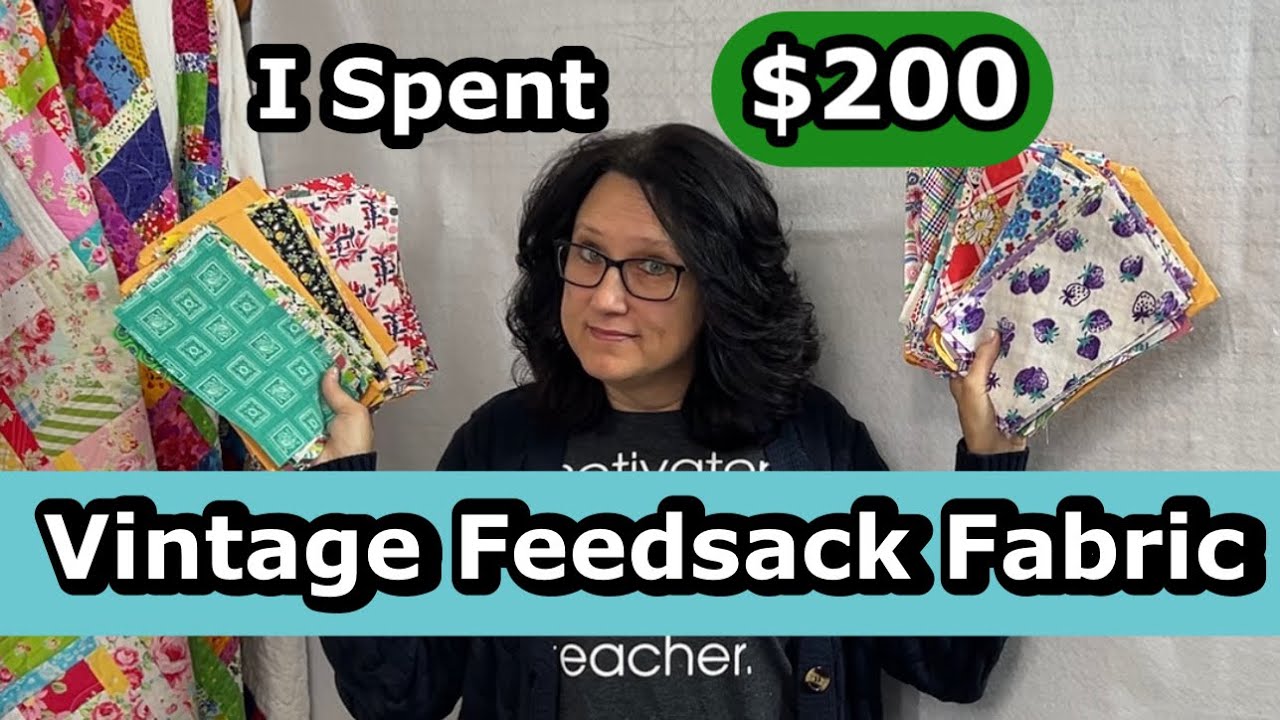Vintage quilt fabric is a treasure trove of history and nostalgia, woven into every intricate thread. Immerse yourself in the rich tapestry of memories as you explore the timeless beauty of these unique fabrics. Each piece tells a story, transporting you back to bygone eras and simpler times. The exquisite craftsmanship and attention to detail displayed in these vintage fabrics are a testament to the skill and dedication of the artisans who created them. From delicate floral patterns to bold geometric designs, each fabric unfolds a world of possibilities for your creative projects. Whether you’re a seasoned quilter or a budding textile enthusiast, the allure of vintage quilt fabric is undeniable. Indulge your senses in the soft textures and vibrant colors that have stood the test of time. Revive forgotten traditions and add a touch of nostalgia to your home with these unique pieces of history. Discover the joy of working with fabrics that carry the stories of generations past, and let your imagination soar as you breathe new life into these cherished remnants of the past. Experience the magic of vintage quilt fabric and embark on a journey of creativity, heritage, and endless inspiration.

The Beauty of Vintage Quilt Fabric
Quilting is an age-old tradition that has stood the test of time. From its humble origins to the present day, quilts have not only provided warmth and comfort but have also served as works of art. Among the various types of quilts, vintage quilt fabric holds a special place in the hearts of collectors and enthusiasts. Let’s dive into the world of vintage quilt fabric and explore its allure.
The Charm of Antique Prints
Vintage quilt fabric is characterized by its unique patterns and prints, which often reflect the fashion and trends of the time. Antique prints feature intricate designs, delicate motifs, and vibrant colors that add a touch of nostalgia to any quilt. These prints are not only visually appealing but also tell stories of the past, making them highly sought after by collectors.
One of the most popular vintage quilt fabric prints is the floral pattern. Delicately rendered flowers in soft pastel shades or bold, bright hues can evoke a sense of whimsy and romance. Additionally, geometric prints, such as chevrons, stripes, or polka dots, offer a more contemporary feel, adding a touch of modernity to vintage quilts.
Novelty prints are another beloved category of vintage fabric. They often depict playful images of animals, characters, or objects. These prints can spark a sense of nostalgia and bring back memories of childhood, making them highly sought after by collectors and quilt enthusiasts alike.
The Quality of Vintage Fabric
One of the reasons vintage quilt fabric is so highly regarded is its exceptional quality. Fabric made decades ago was often handcrafted with meticulous attention to detail. Many vintage fabrics were made from natural fibers such as cotton or silk, which are known for their durability and softness.
Unlike their modern counterparts, vintage fabrics were often made without the use of harmful chemicals or synthetic materials. This results in a fabric that feels luxurious to the touch and is less likely to cause allergies or skin irritations. The durability of vintage fabric is evident in the fact that many antique quilts have survived for centuries, still retaining their beauty and functionality.
Preserving Vintage Quilt Fabric
Given the historical and sentimental value of vintage quilt fabric, it is essential to take proper care to preserve it for future generations. The following tips will help you maintain the integrity of your vintage fabric:
1. Storage: Store your vintage fabric in a cool, dry place away from direct sunlight. Avoid folding the fabric too tightly to prevent creases and wrinkles that could damage the fibers.
2. Cleaning: If your fabric requires cleaning, it is best to consult a professional textile conservator. They will have the expertise to handle delicate fabrics without causing any harm.
3. Handling: When handling vintage fabric, make sure your hands are clean and dry. Avoid excessive rubbing or pulling, as it could weaken the fibers or cause damage to delicate prints.
4. Display: If you wish to display your vintage fabric, consider framing it or using acid-free archival sleeves. This will protect it from dust, dirt, and harmful UV rays.
The Thrill of Hunting for Vintage Fabric
For many collectors and enthusiasts, the thrill of hunting for vintage quilt fabric is an adventure in itself. Vintage fabric can be found in various places, such as antique shops, flea markets, or even online auction sites. The joy of stumbling upon a rare and exquisite print is unmatched.
Networking with fellow vintage fabric enthusiasts can also provide valuable insights and tips on where to find hidden treasures. Joining quilting communities or attending quilting events and workshops can open doors to a world of knowledge and resources.
While vintage fabric can be a bit more expensive than modern alternatives, the value it adds to a quilt is immeasurable. The stories and history woven into these fabrics make them truly one-of-a-kind.
The Timelessness of Vintage Quilt Fabric
Vintage quilt fabric transcends trends and fads, maintaining its appeal throughout the years. Whether used in traditional quilt patterns or modern designs, vintage fabric adds a touch of nostalgia and sophistication to any project.
The timelessness of vintage quilt fabric lies not only in its aesthetic appeal but also in the stories it carries. Each piece of fabric has a history, a journey that connects the past with the present. Incorporating vintage fabric into your quilts allows you to become part of that story and create something truly special.
In conclusion, vintage quilt fabric is more than just fabric. It is a piece of history, a work of art, and a testament to the enduring legacy of quilting. The beauty, quality, and timelessness of vintage fabric continue to captivate both collectors and enthusiasts alike. So, next time you come across a piece of vintage quilt fabric, take a moment to appreciate its charm and the story it holds within.
Vintage FeedSack Fabric Haul: Unearthing Antique Textiles for Quilting Delights
Video Source : The Sewing Channel
Vintage Quilt Fabric:
Vintage Quilt Fabric
| Pattern | Material | Origin | Year |
|---|---|---|---|
| Log Cabin | 100% Cotton | United States | 19th century |
| Double Wedding Ring | Silk Blend | United States | 1930s |
| Grandmother’s Flower Garden | Chintz | England | 18th century |
| Bow Tie | Rayon | United States | 1940s |
Vintage quilt fabric holds a rich history and charm that captivates collectors and enthusiasts alike. Each pattern showcases a unique narrative, and the materials used reflect the era in which they were created.
The Log Cabin pattern, originating in the United States during the 19th century, is a classic design that symbolizes the warmth and comfort of home. Crafted with 100% cotton, this fabric not only provides durability but also a soft touch that enhances the overall appeal of the quilt.
The Double Wedding Ring pattern, popularized in the 1930s, exudes elegance and romance. Made from a luxurious silk blend, this fabric adds a touch of sophistication to any quilt. Its intricate design and delicate texture make it a standout choice among vintage quilt collectors.
Traveling across the Atlantic, we encounter the Grandmother’s Flower Garden pattern, hailing from 18th-century England. This design showcases the exquisite artistry of chintz fabric, known for its vibrant floral motifs. The combination of intricate handiwork and the durability of chintz makes this pattern a true testament to the craftsmanship of bygone eras.
Lastly, the Bow Tie pattern, popularized in the United States during the 1940s, reflects the influence of the post-war era. Rayon, a synthetic fabric with a lustrous finish, was commonly used for creating this pattern. Its smooth texture and vibrant colors make it an excellent choice for capturing the spirit of the time.
As a collector or enthusiast of vintage quilt fabric, exploring the patterns, materials, origins, and years of these timeless pieces offers a glimpse into the rich tapestry of history.

